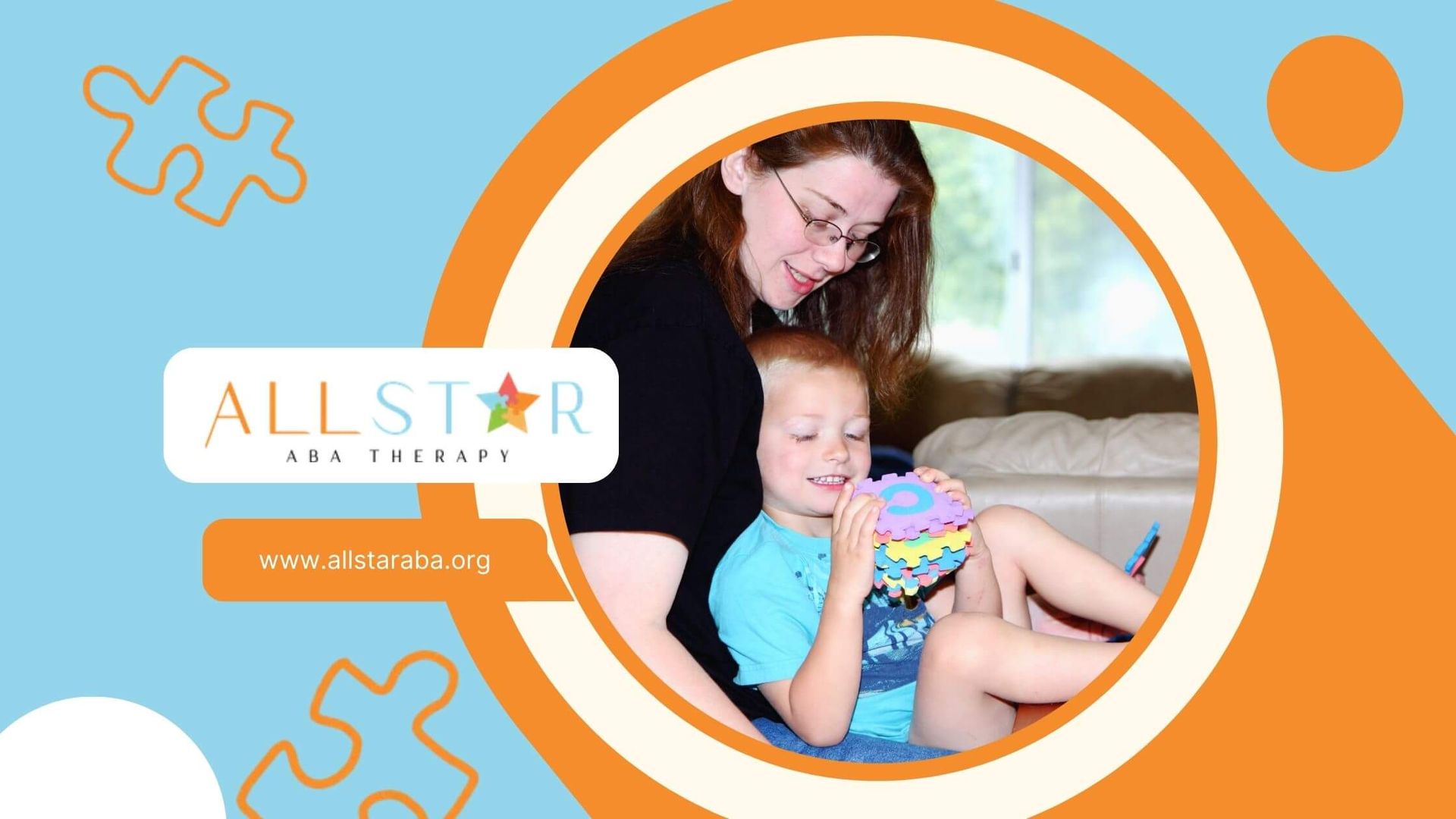New Paragraph
Investigating the Role of Gut Microbiome in Autism
Understanding Gut Microbiome in Autism
Exploring the intricate connections within our body, recent research delves into the correlation between the gut microbiome and neurological conditions, including Autism Spectrum Disorder (ASD). This section provides insights into how gut health may influence ASD, focusing on the microbiota-gut-brain axis, early influences on gut microbiome development, and the role of short-chain fatty acids (SCFA).
Microbiota-Gut-Brain Axis
The microbiota-gut-brain axis represents a bidirectional communication pathway between our gut and brain, with growing evidence suggesting that gut microbiota can have profound effects on neurological disorders such as autism. The gut is home to trillions of bacterial cells, far outnumbering human body cells, and these bacteria are instrumental in the production and transportation of metabolites, as well as maintaining gut homeostasis. The neurotransmitters produced in the gut can influence emotions by regulating the gut-brain axis, highlighting the potential impact on conditions like ASD.
Early Influences on Gut Microbiome
Early microbial colonization, influenced by factors such as mode of delivery and antibiotic usage, plays a significant role in shaping the gut microbiome, which in turn can affect the onset of autism. During the early gestation period, maternal microbiota can impact fetal neurodevelopment, with certain bacterial species within the maternal-fetal unit having the potential to influence pregnancy and fetal brain development positively or negatively. For more detailed information on how maternal factors can affect ASD, readers can explore maternal age and autism and epigenetics and autism.
Role of Short-Chain Fatty Acids
Plant-based fiber fermentation by gut bacteria yields various SCFAs, which can exert either beneficial or detrimental effects on gut health and the neurological development of individuals with ASD. Bacteroidetes and Firmicutes are two major bacterial phyla found in the human gut, with their relative abundances being influenced by dietary carbohydrates. High-fat diets may decrease the concentration of SCFAs and the abundance of beneficial bacteria such as Bifidobacterium. The gut microbiota's ability to modulate the bioavailability of biochemicals, nutrients, and growth factors supports offspring growth and proper fetal brain development, emphasizing the importance of a balanced diet and gut health in relation to ASD.
Through a deeper understanding of the gut microbiome's role in ASD, there is potential for developing innovative therapeutic interventions and identifying potential causes of autism. This exploration also encourages further discussion on related topics, such as the debated connection between vaccines and autism.
Gut Microbiome Studies
Recent research has increasingly focused on the gut microbiome's role in various health conditions, including neurological disorders like Autism Spectrum Disorder (ASD). These studies help to unravel the complex interactions between our gut bacteria and brain function, providing new insights into the potential causes and treatments of autism.
Comprehensive Analysis Findings
Comprehensive analyses of the gut microbiome have shed light on the intricate relationship between our gut bacteria and the brain, often referred to as the microbiota-gut-brain axis. This bidirectional connection indicates that the gut microbiota can influence neurological health and behavior, potentially playing a role in the development of ASD.
A key finding from these studies is the significant impact of early colonization of gut bacteria. Factors such as mode of delivery (vaginal birth versus cesarean section) and early antibiotic use appear to have long-lasting effects on an individual's gut microbiome composition. Such early influences are thought to be critical in the formation of the gut-brain axis and may contribute to the onset of ASD.
Furthermore, the gut microbiome's ability to produce short-chain fatty acids (SCFA) through the fermentation of plant-based fibers has been found to have varying effects on gut and neurological health. The balance of beneficial versus detrimental SCFA may influence the gut's integrity and, subsequently, neurological development in individuals with ASD.
These comprehensive studies offer hope for new therapeutic interventions and underscore the necessity for further research into the gut microbiome's role in ASD.
Impact on Neurological Disorders
The gut microbiome's influence extends to a broad range of neurological disorders beyond ASD, suggesting a general mechanism at play within the microbiota-gut-brain axis. The production of SCFAs and other metabolites by gut bacteria has been linked to changes in brain chemistry and function, potentially affecting mood, cognition, and behavior.
These findings have significant implications for understanding the complex etiology of ASD and other neurological conditions. By elucidating the ways in which gut bacteria impact brain development and function, researchers hope to uncover novel approaches to treatment. For instance, interventions that modulate the gut microbiome, such as fecal microbiota transplantation (FMT), have shown promise in treating gastrointestinal disorders and are being investigated for their potential benefits in ASD patients.
For parents and professionals involved with individuals with ASD, understanding the connection between the gut microbiome and neurological health is crucial. It guides them to consider dietary and lifestyle factors that may influence the gut microbiome and offers a new perspective on the causes of autism, moving beyond traditional focus areas such as vaccines and autism and exploring topics like maternal age and autism and epigenetics and autism. This evolving area of research holds the promise of more targeted and effective interventions for ASD and potentially other neurological disorders.
Gut Microbiome Composition
The composition of the gut microbiome plays a significant role in human health and disease, including neurological disorders such as autism spectrum disorder (ASD). Research has begun to uncover how variations in gut microbial communities may influence the development and presentation of ASD.
Meta-Analysis Insights
A recent meta-analysis has provided valuable insights into the gut microbiome composition of individuals with ASD. By analyzing data from 10 studies and 15 large datasets, researchers found notable differences between the microbiomes of autistic and non-autistic children. The analysis revealed 591 microbial strains that were more common in autistic children, compared to 169 strains more prevalent in non-autistic children.
Furthermore, the metabolites produced by microbial and brain metabolic pathways differed between these groups, suggesting a global, whole-body relationship between autism and the microbiome. The signatures of these microbes correlated with dietary habits, levels of immune molecules called cytokines, and gene-expression patterns in the brain. Such findings highlight the comprehensive relationship between autism and the microbiome, offering potential pathways for therapeutic intervention.
| Microbial Strains | More Common in Autistic Children | More Common in Non-Autistic Children |
|---|---|---|
| Total Identified | 591 | 169 |
Microbial Differences in Autism
Understanding the specific microbial differences in individuals with autism can provide a better understanding of the condition and pave the way for targeted treatments. The microbial variations identified suggest that individuals with ASD may have a unique gut microbial environment that could influence their condition.
The microbial differences also shed light on the potential role of diet, immune response, and even gene expression in the context of ASD. This emphasizes the need for a holistic approach to treatment that considers the causes of autism and its multifaceted nature.
The findings from the meta-analysis underscore the significance of the gut-brain axis in autism and support the hypothesis that the gut microbiome may impact neurological development and function. As research continues, the gut microbiome composition could become a focal point for understanding ASD and developing new therapeutic strategies.
The intricate connections between the gut microbiome and ASD highlight the importance of continued research in this area. Parents, family members, and professionals working with individuals with ASD should remain informed about the latest developments in the field to better support those affected by the condition. For a broader understanding of ASD and its potential origins, explore topics such as maternal age and autism, epigenetics and autism, and the debated connection between vaccines and autism.
Therapeutic Interventions
As research into the autism and gut microbiome connection deepens, therapeutic interventions aimed at altering the microbial environment are being considered as potential treatments for Autism Spectrum Disorder (ASD). Two such interventions that have been gaining attention are Fecal Microbiota Transplantation (FMT) and dietary as well as probiotic approaches.
Fecal Microbiota Transplantation
FMT is a process where fecal matter from a healthy donor is transferred to an individual with a particular health condition, with the intent of restoring a healthy microbial balance in the gut. This treatment has been successfully implemented in studies related to gastrointestinal (GI) disorders, such as recurrent Clostridium difficile infections (rCDIs) and Inflammatory Bowel Disease (IBD), showing effective results with satisfactory efficacy. In the context of ASD, children who underwent FMT showed significant improvement in GI symptoms, suggesting a beneficial impact on the microbiota-gut-brain axis.
Furthermore, a more intensive therapy known as microbiota transfer therapy (MTT) includes an initial antibiotic treatment, a bowel cleanse, followed by a high-dose fecal microbiota transplant. These therapies have shown promise in reducing both gut symptoms and ASD-related symptoms, and in regulating the gut microbiota in individuals with ASD, paving the way for a novel approach to managing the condition.
Dietary and Probiotic Approaches
Probiotics and dietary interventions are also being explored for their potential to improve ASD symptoms by altering the gut microbiota. Probiotics, such as the combined mixture VSL#3, have been shown to alleviate autistic symptoms and improve the severity of gastrointestinal symptoms in ASD patients. Probiotic supplementation is known to alter the gut microbial composition, offering a non-invasive method to potentially improve ASD conditions.
Prebiotics, including galacto-oligosaccharide (B-GOS), have been found to increase the abundance of beneficial bacteria, particularly Bifidobacterium spp., in the gut. While the studies on prebiotics in ASD patients are limited, they indicate a direction for future research in this area.
Dietary interventions have been studied as well, with particular focus on ketogenic diets (KD), gluten-free and casein-free (GFCF) diets, and supplementation with omega-3 fatty acids. These dietary changes have shown potential positive effects on the symptoms and performance of individuals with ASD. However, these studies highlight the need for more in-depth research to validate the effectiveness and establish the safety of these dietary interventions.
Therapeutic interventions such as FMT and dietary modifications are emerging as potential avenues to support individuals with ASD. While promising, these interventions underscore the necessity for further study. Parents, family members, and professionals involved in the care of individuals with ASD, including ABA therapists, educators, and school personnel, must stay informed about the developments in this field to better understand the causes of autism and potential treatments. Additionally, factors such as maternal age and epigenetics continue to play an important role in the ongoing research into ASD.
Influential Factors
In the complex understanding of Autism Spectrum Disorder (ASD), certain perinatal factors have been identified to influence the development and diversity of the gut microbiome, which may, in turn, affect neural development and ASD symptoms. This section delves into the effects of the mode of delivery and the impact of antibiotic usage on the gut microbiome of individuals with autism.
Mode of Delivery Effects
The mode of delivery is a significant factor that can shape the initial composition of an infant's gut microbiome. Research has demonstrated that babies born via vaginal delivery are typically colonized by the mother's vaginal bacteria, which are considered healthy and beneficial for the infant's immune system development. In contrast, babies born via cesarean section (C-section) are more likely to have a gut microbiome composition influenced by the mother's skin flora and environmental microorganisms, including pathogenic bacteria found in the hospital setting. Several studies, including those cited by PubMed, suggest that children born via C-section have an elevated risk of developing ASD compared to their vaginally delivered counterparts, potentially due to these differences in early gut microbial exposure.
To illustrate the distinction in microbial composition based on the mode of delivery, consider the following table:
| Mode of Delivery | Dominant Bacteria in Infant's Gut | Associated ASD Risk |
|---|---|---|
| Vaginal Delivery | Healthy maternal vaginal bacteria | Lower |
| Cesarean Section | Maternal skin and environmental bacteria | Higher |
These findings underscore the importance of further investigation into how the mode of delivery can influence the causes of autism and guide potential preventative strategies.
Antibiotic Usage Impact
Antibiotics are life-saving medicines, but their use during infancy and early childhood may have unintended consequences on the maturation of the immune system and the establishment of a healthy gut microbiota. The overuse of antibiotics during the formative first years of life has been linked to microbial dysbiosis, a state of imbalance in the gut microbiome, which may activate genes associated with ASD. This information, detailed in studies shared by PubMed and NCBI, emphasizes the critical need for judicious antibiotic use to avoid disrupting the sensitive developmental processes that could influence ASD risk.
The following points outline the impact of antibiotic usage:
- Antibiotic treatment can significantly affect the natural evolution of the gut microbiome.
- Early and unregulated antibiotic intervention can disturb immune system maturation and healthy microbiota formation.
- There is an association between excessive antibiotic use in early life and an increased risk of ASD.
As the scientific community continues to unravel the intricate connections between the gut microbiome and ASD, it is vital to consider these influential factors in both research and clinical practice. Understanding the epigenetics and autism relationship, alongside these factors, could lead to innovative therapeutic interventions and inform parental decision-making during childbirth and early childhood healthcare.
Future Research Directions
The exploration of the gut-brain connection in autism spectrum disorder (ASD) has unveiled a complex interplay between the gut microbiome and neurological health. As this field of study expands, future research directions hold the potential to deepen our understanding of ASD and develop new therapeutic strategies.
Longitudinal Studies Importance
Longitudinal studies are increasingly recognized as vital in the field of autism research, particularly concerning the microbiome's influence on neurodevelopment. These studies track changes over time, providing valuable insights into how early life events shape the gut microbiome and potentially influence the development of ASD.
Spectrum News emphasizes the urgency for longitudinal research with intervention components to determine the direction of causality between the gut microbiome and autism. Such studies would help clarify whether microbiome alterations contribute to the development of ASD or are a consequence of it. By focusing on the temporal dynamics of the microbiome, researchers can better understand the progression and potential points of intervention.
| Research Type | Objective |
|---|---|
| Cross-sectional | Assess the microbiome at a single time point |
| Longitudinal | Monitor microbiome changes over time to infer causality |
For parents, educators, and therapists, understanding the importance of these studies can empower them to support research efforts and stay informed about findings that may influence care strategies. It's also essential for stakeholders to be aware of the causes of autism and how these may intersect with gut microbiome research.
Microbiome and Autism Causality
The question of causality between the autism and gut microbiome is a focal point of current research. The microbiota-gut-brain axis is recognized for its bidirectional nature, wherein the gut microbiota can have profound effects on neurological conditions such as ASD. However, the complexity of this relationship necessitates a more nuanced approach to determine how these connections form and evolve over time.
Studies have indicated that many individuals with ASD experience gastrointestinal (GI) symptoms, suggesting a link between gut health and neurodevelopmental disorders. The gut microbiome's role in these conditions is multifaceted, involving the modulation of neurotransmitters, metabolites, and immune responses, all of which could impact ASD symptoms. Researchers are now tasked with untangling these threads to discern the extent to which microbial differences in autism are a cause or effect of the disorder.
Future research must also consider how various influential factors, such as maternal age, epigenetics, mode of delivery, and antibiotic usage, contribute to the gut microbiome's composition and its association with ASD. Only through comprehensive and carefully designed studies can the scientific community move closer to establishing causality and ultimately enhancing the lives of those affected by ASD.
By supporting and understanding the significance of this research, parents, ABA therapists, and educators can be better equipped to participate in discussions about treatment options and the potential for microbiome-focused interventions in ASD.
Need Support?
We're Here to Help!
Our experienced team is ready to assist you. Reach out today to discuss how we can support your child's development and well-being.
Get started with expert ABA therapy today.








